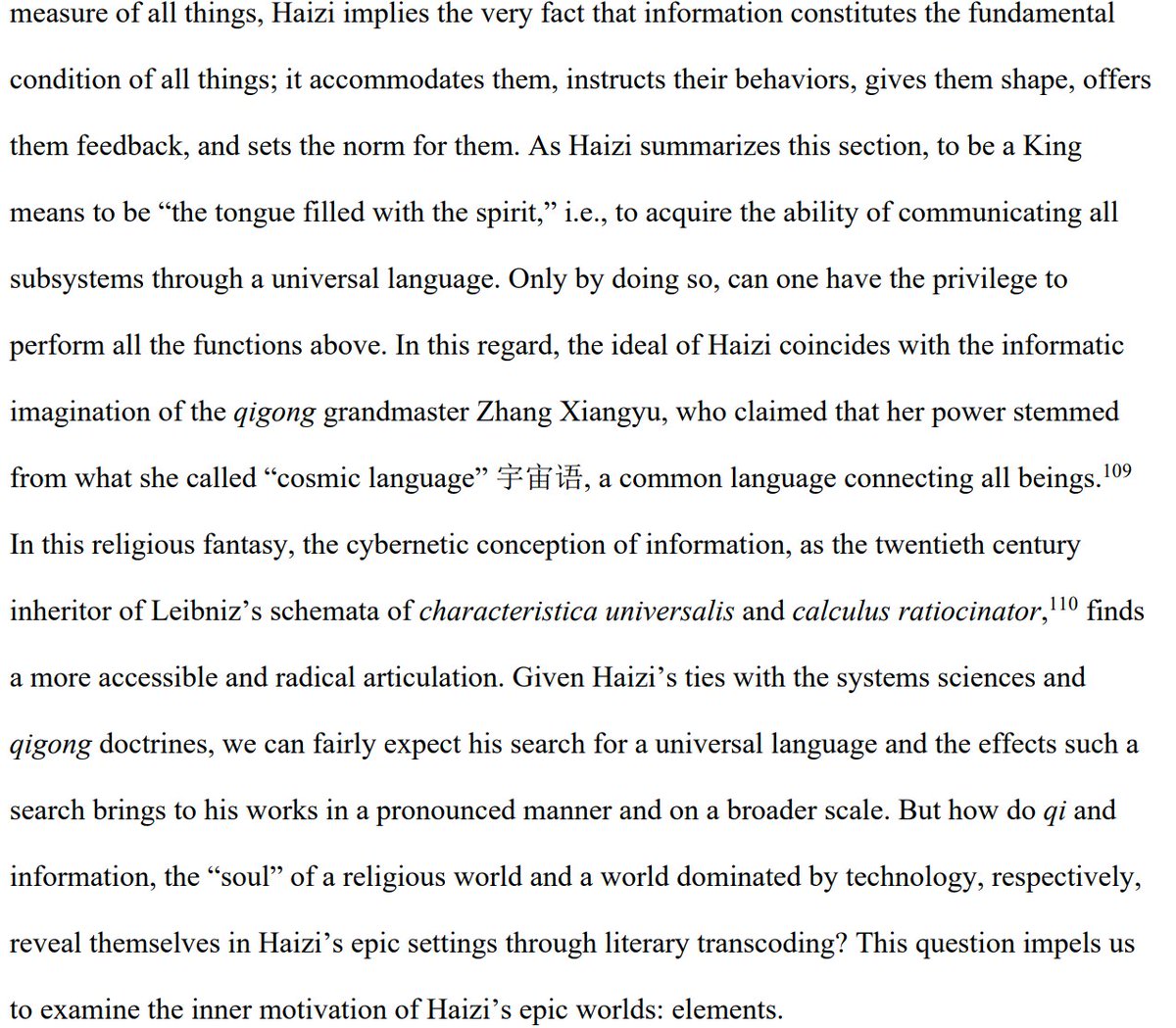This is an essay about online politics by Wang Taotao 王陶陶. He says, basically: ideological confrontation with the West has sped up the decline of Chinese liberalism, and a generation born decades on from Reform and Opening are unenthusiastic about the market economy. 
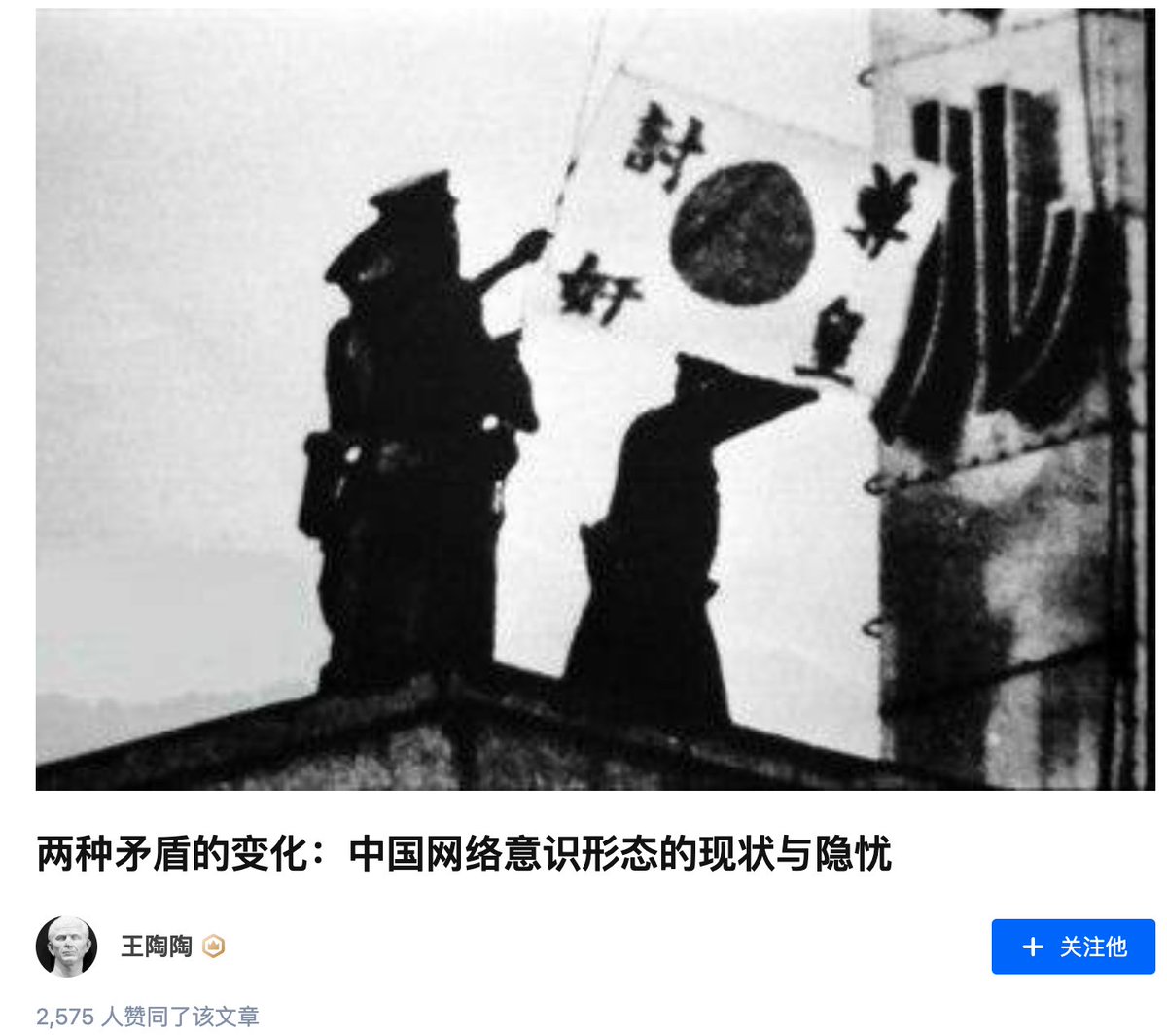
Identified with openness to the West, liberalism is untenable in an age of conflict with the United States. He compares the decline of liberalism to the decline of pan-Asianism in the '30s and the shock delivered to pro-Soviet intellectuals in the wake of the Sino-Soviet split. 
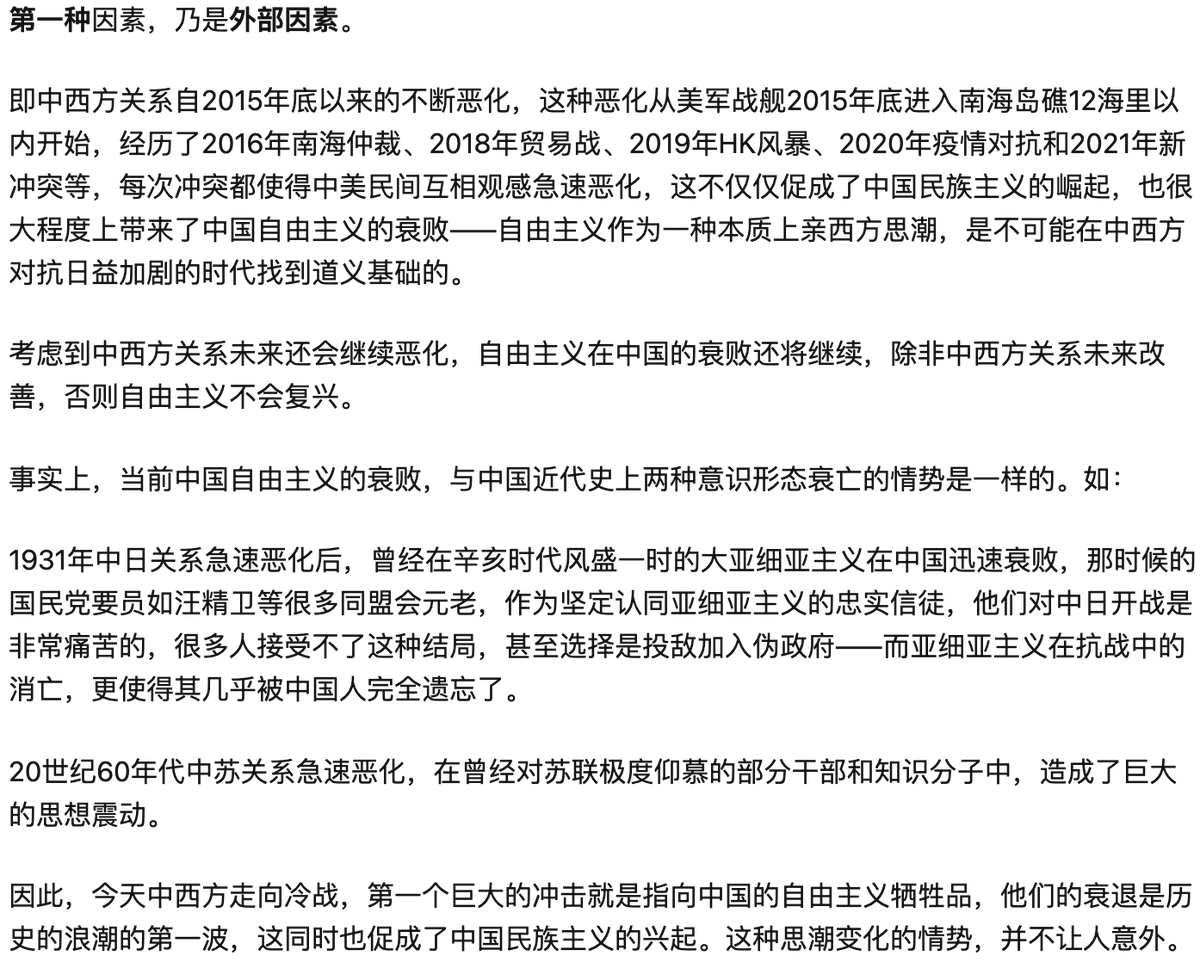
The second factor is a generational split: people born in the '60s, '70s, even to some extent the '80s were beneficiaries of Reform and Opening, when a college degree was a ticket to the good life. This is no longer the case. There is increasing skepticism of the market economy. 
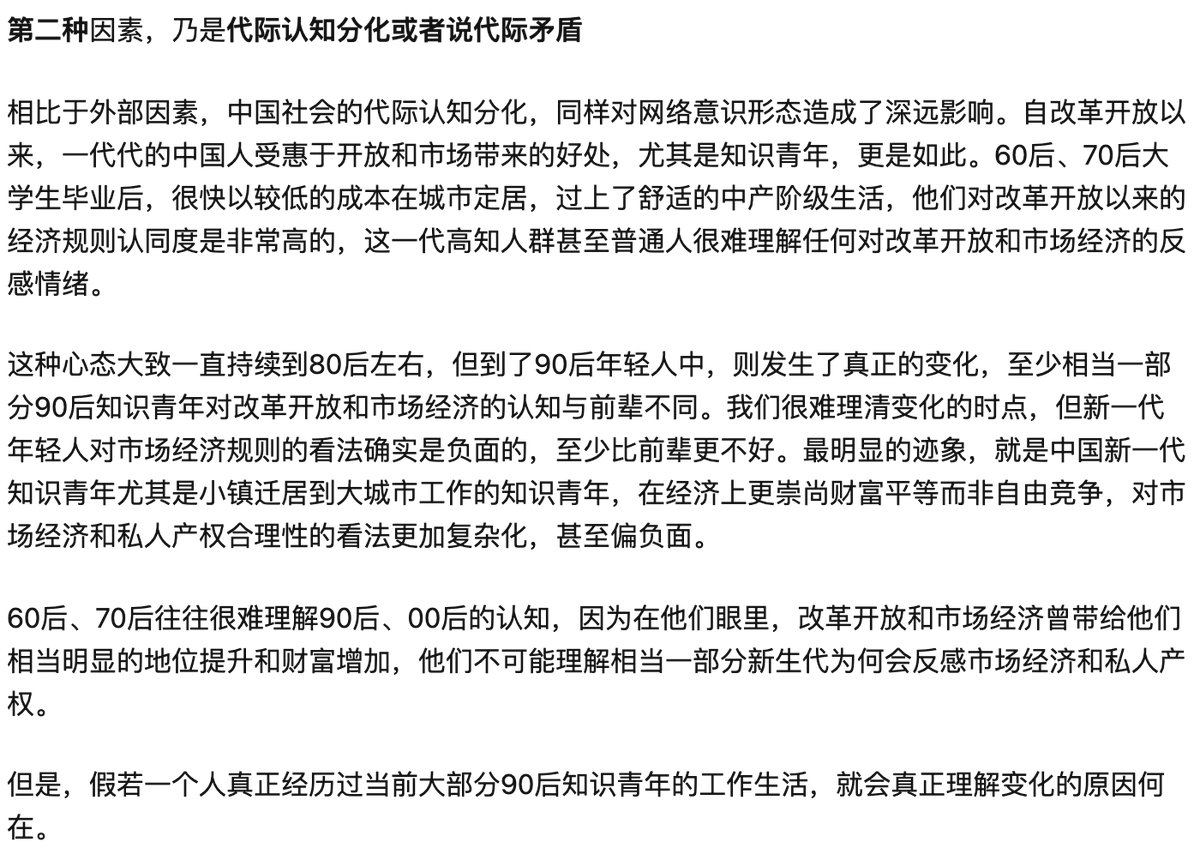
"A new generation, rather than enjoying economic freedom and rights, feels 'oppressed' by the market economy." What follows is a discussion of the housing market and working conditions for educated young people. Work yourself to death and you still can't make it. 
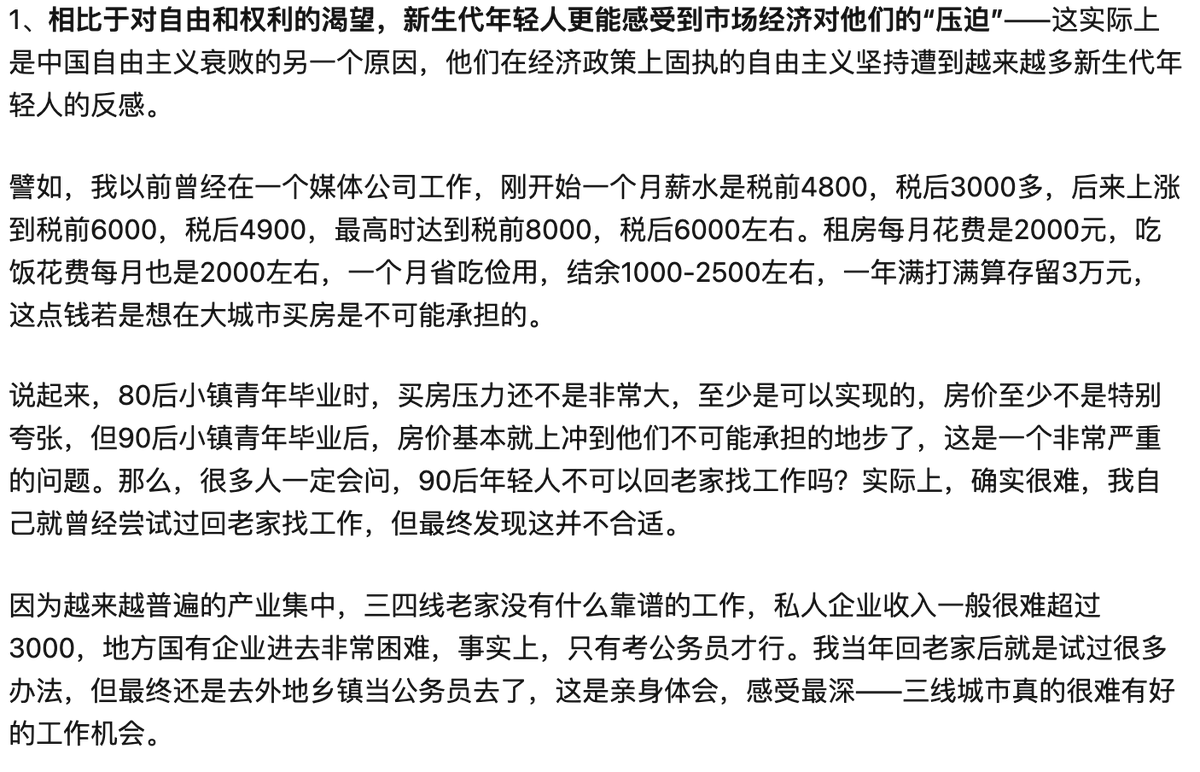
Since Wang Taotao's analysis is supposedly from a public security perspective, he gives us the negative example of Kita Ikki 北一輝: a man that grew up in an age of prosperity, but who rejected liberalism to become an architect of Japanese fascism. An interesting example. 



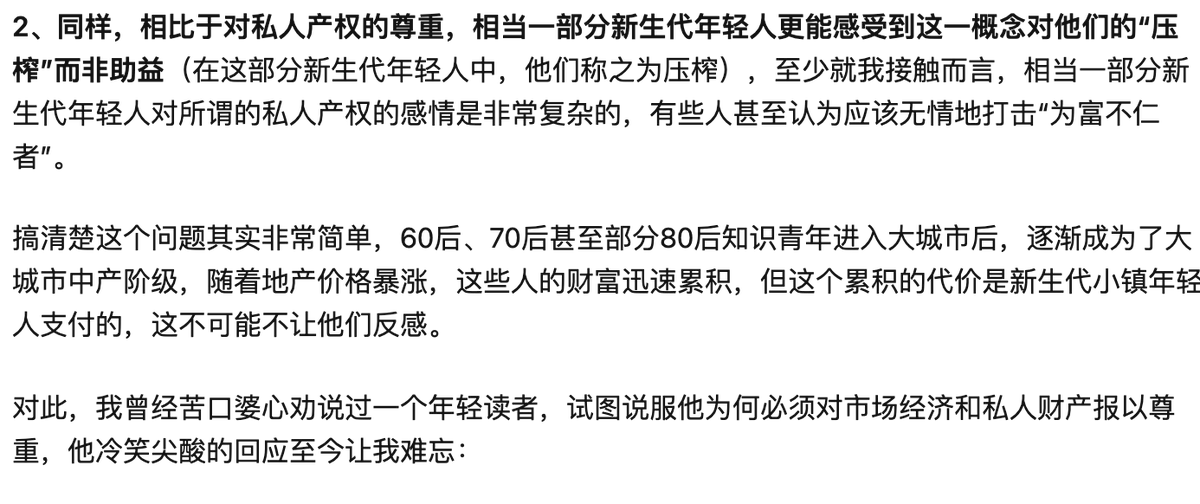
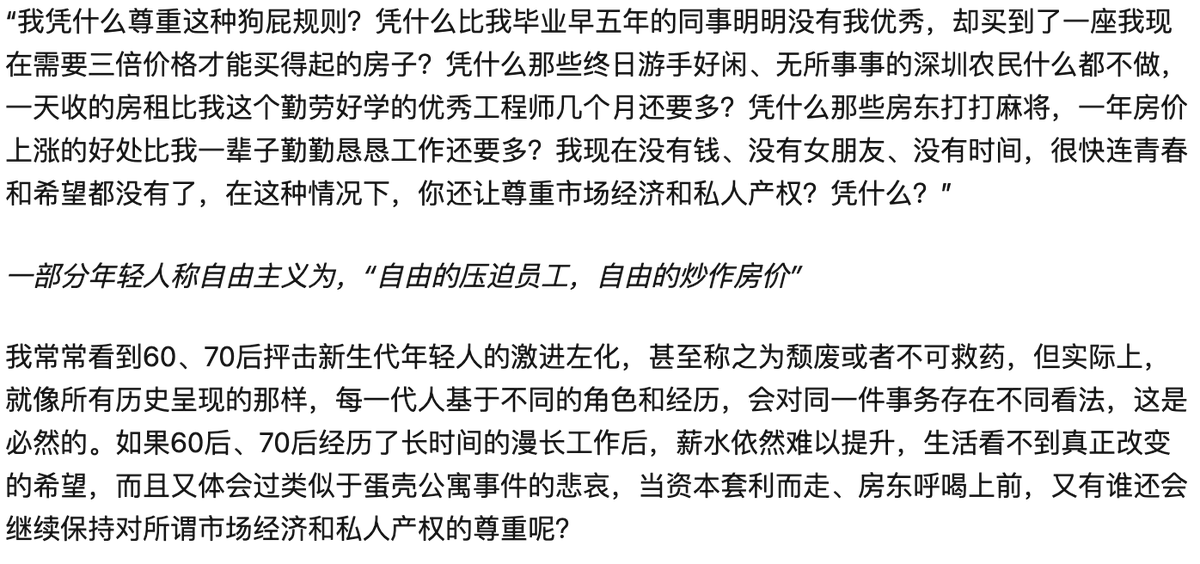

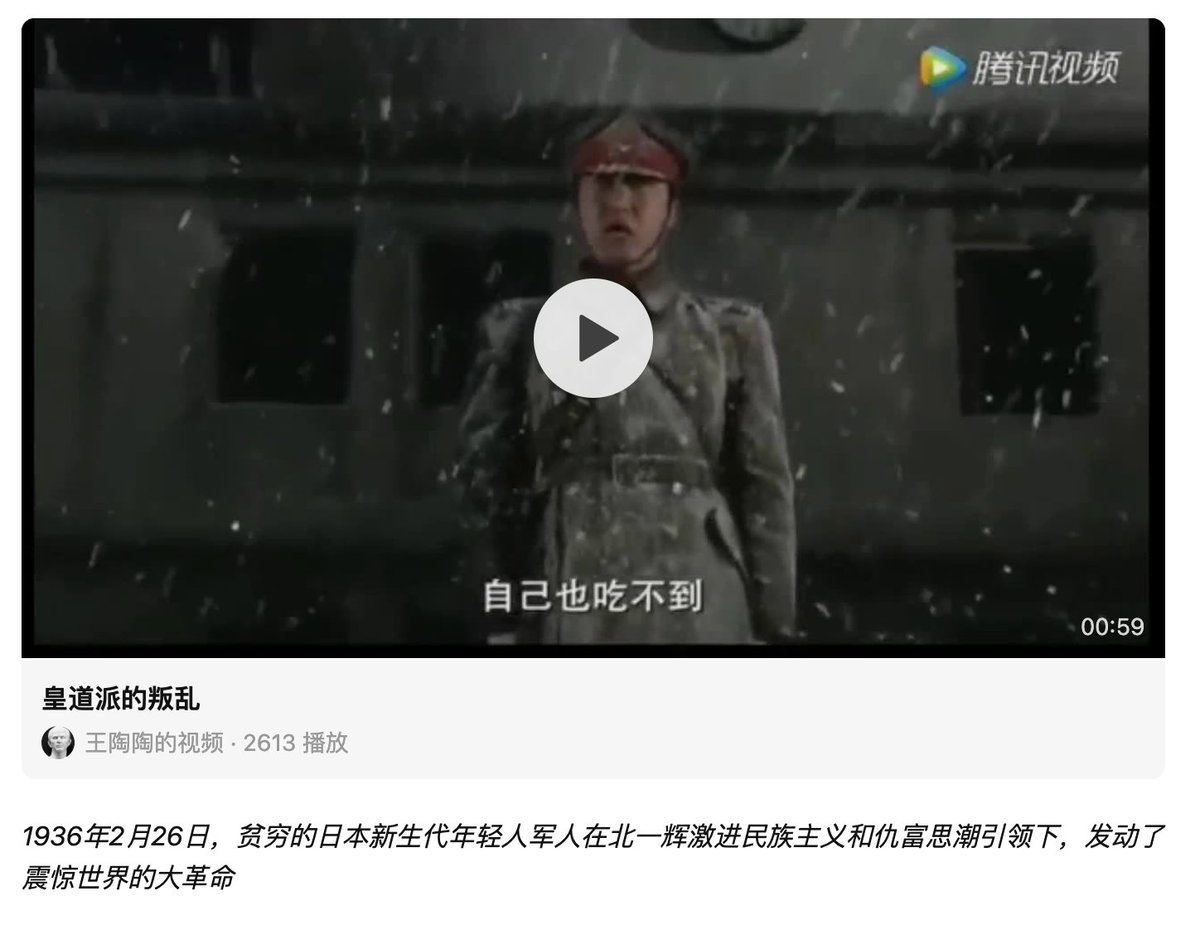
He identifies a few turning points in online public opinion, the first of which being the rise of demotivational thinking 颓废思想 in 2016-2017. Basically, all the slacker memes and talk of involution 内卷, acknowledgement of how everything is pointless... 
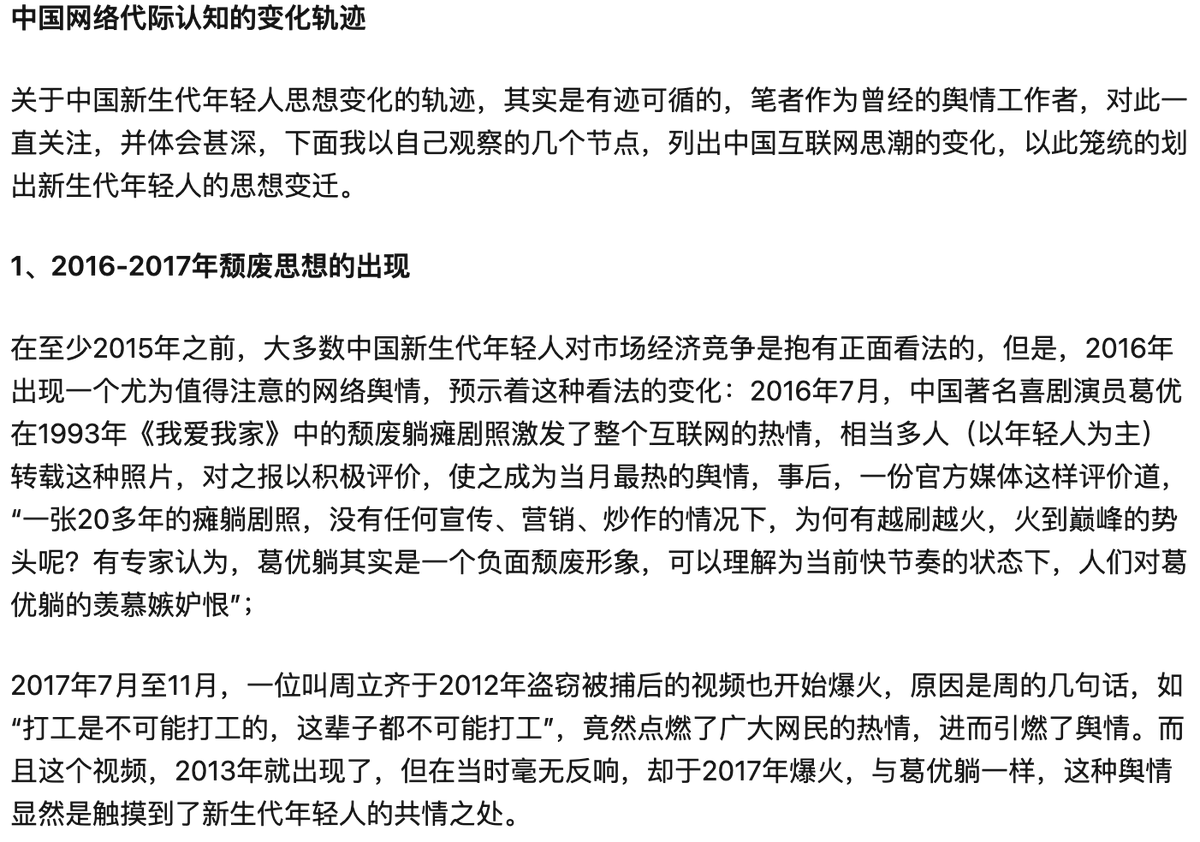
He also identifies a trend of hatred of the wealthy elite. There are examples. I'm skipping them. He says this is not a political reaction, but an expression of economic dissatisfaction. I don't understand his argument or the dates he's chosen. But there it is. 
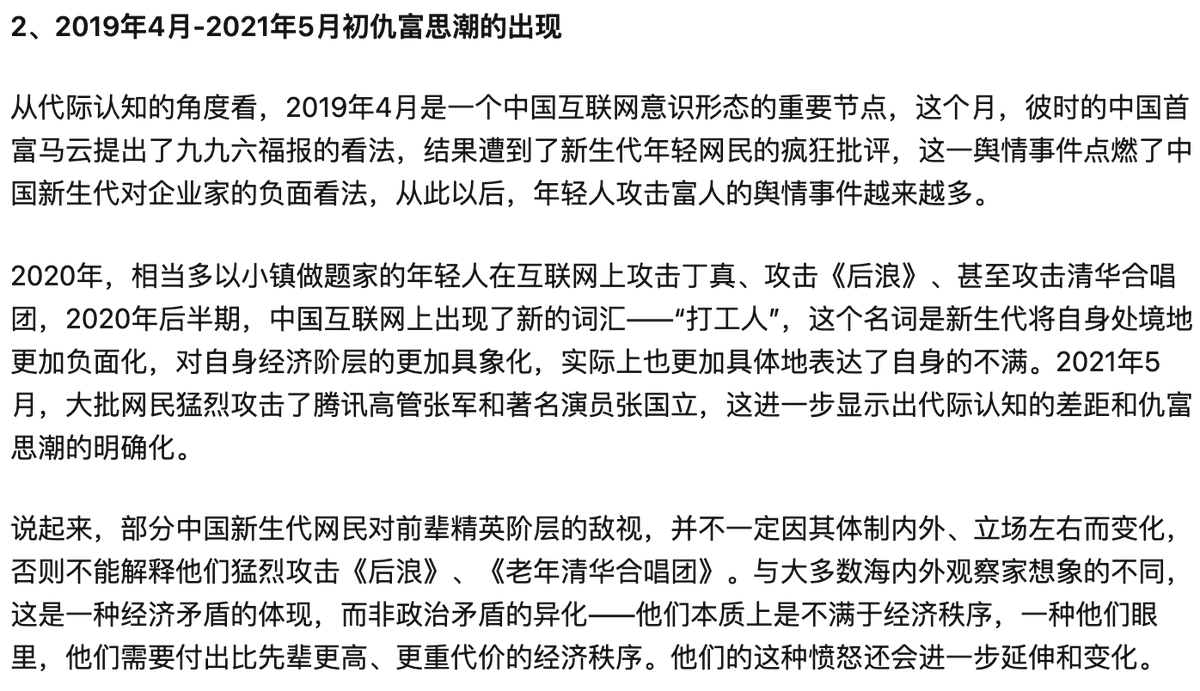
He gets back on track: the party-state and a young generation not invited to partake in the prosperity monopolized by the last generation have formed a pact that has wiped out a liberal tendency (in online public opinion, at least, since that's the focus here). 
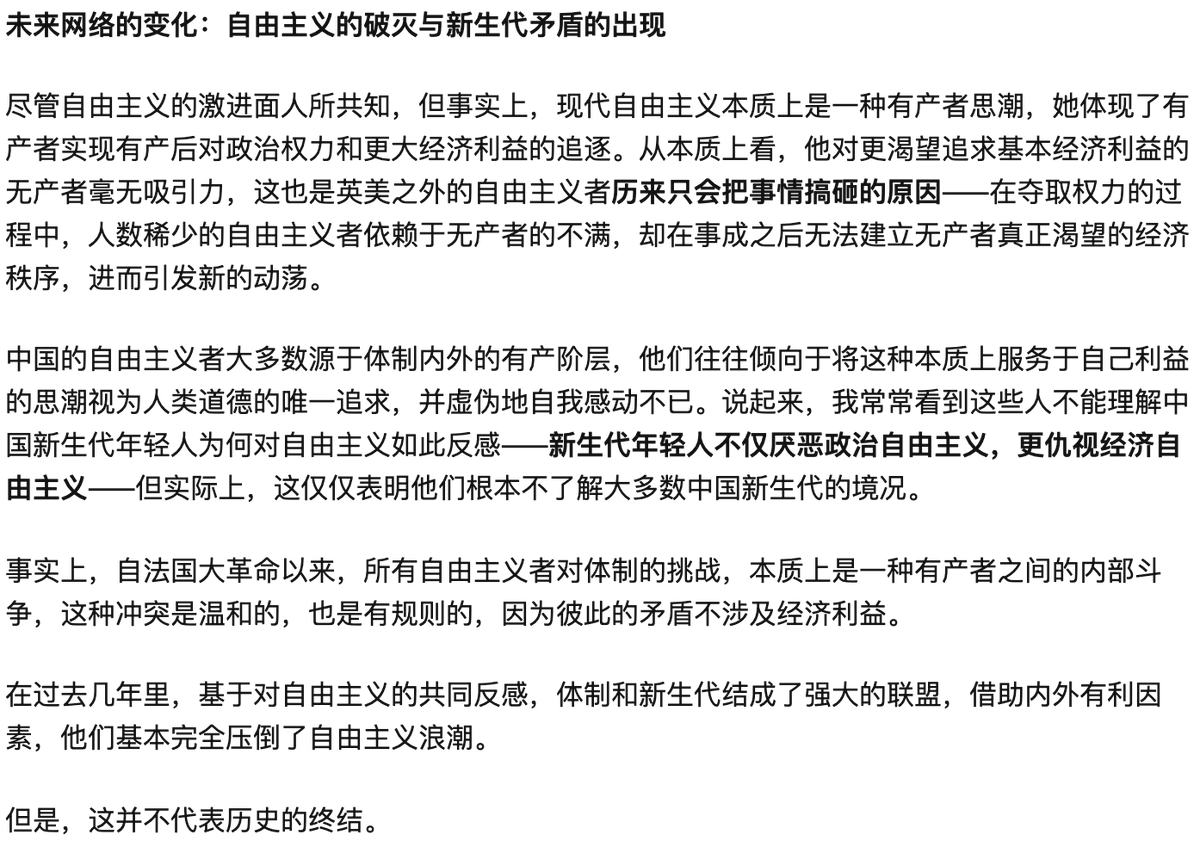
The problem, though, is even if the advocates of liberalism are silenced, an illiberal party-state is still guaranteeing market competition and bourgeois property rights. That's how you get to Kita Ikki attacking the capitalists under the royalist, nationalist banner. 

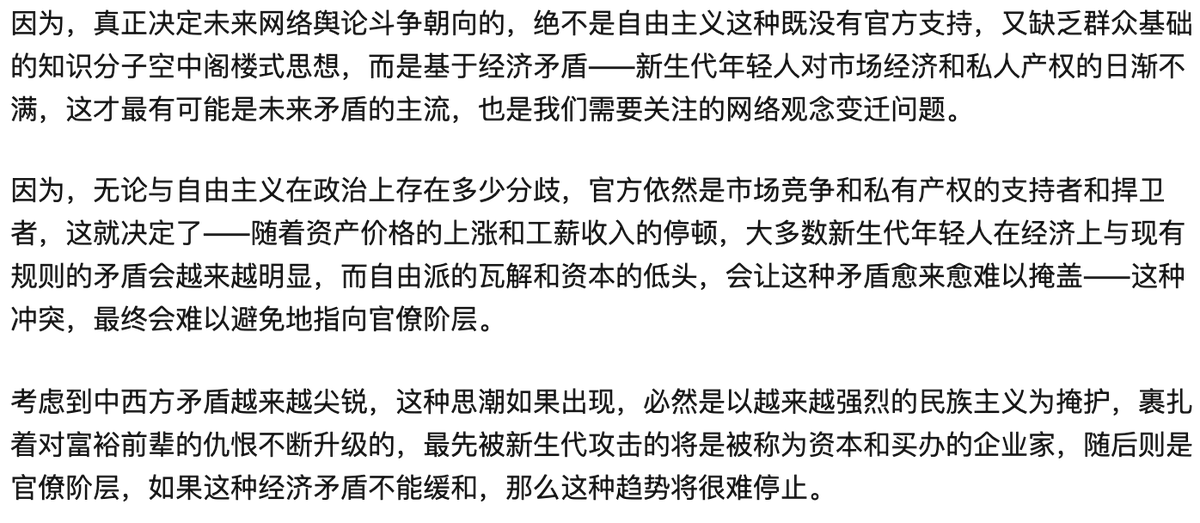
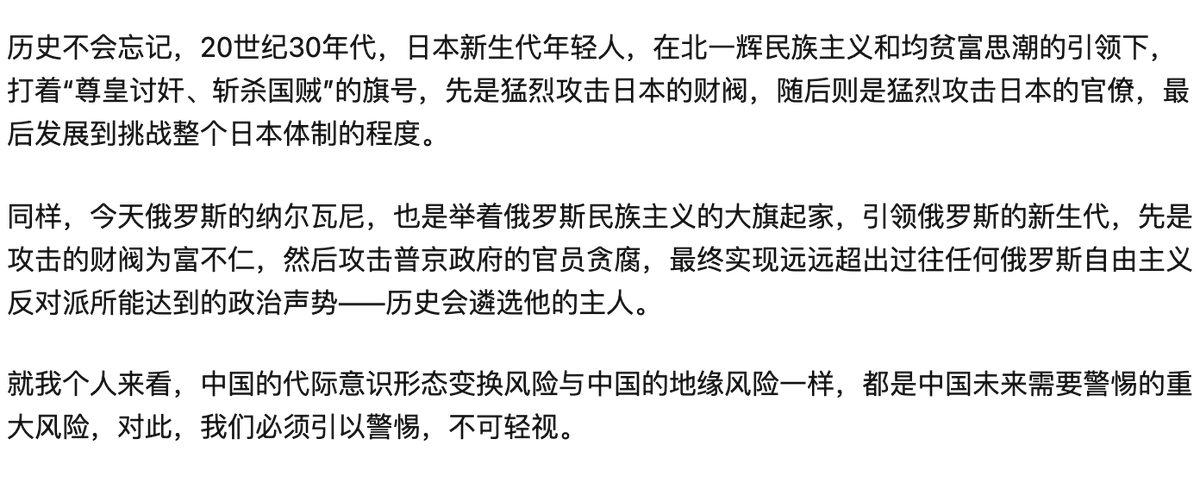
Again, analyzing this from a question of national security, he suggests that the natural outcome of external deterioration and illiberal public discourse might be a young generation calling for leaders to discipline the propertied class and ensure order. 


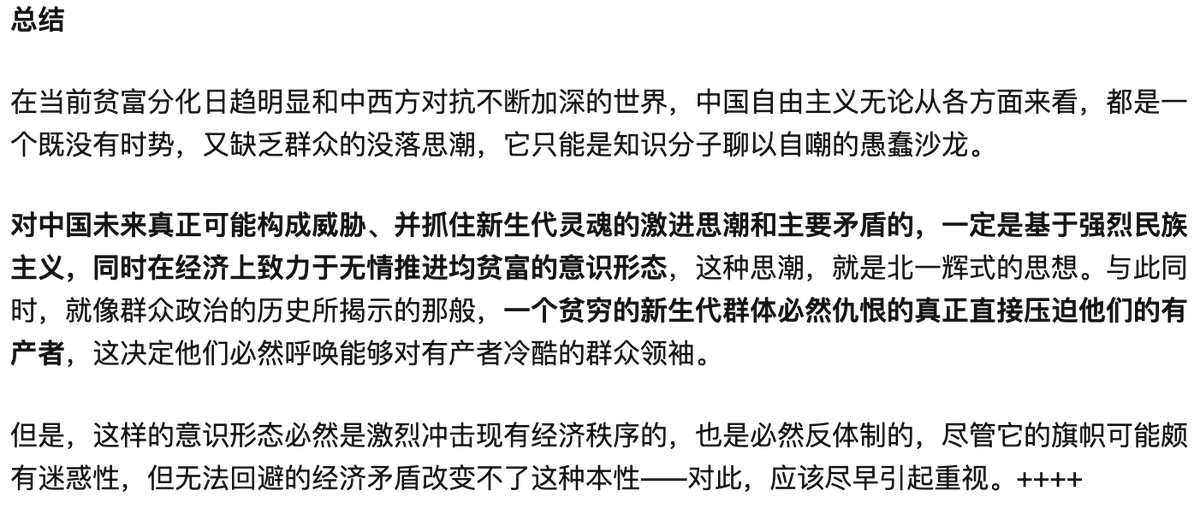
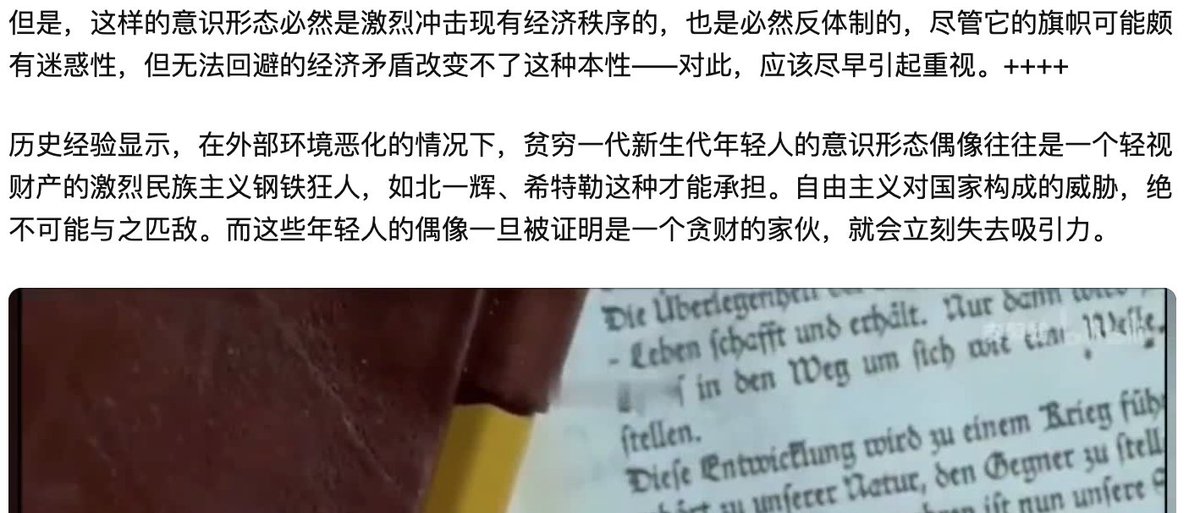
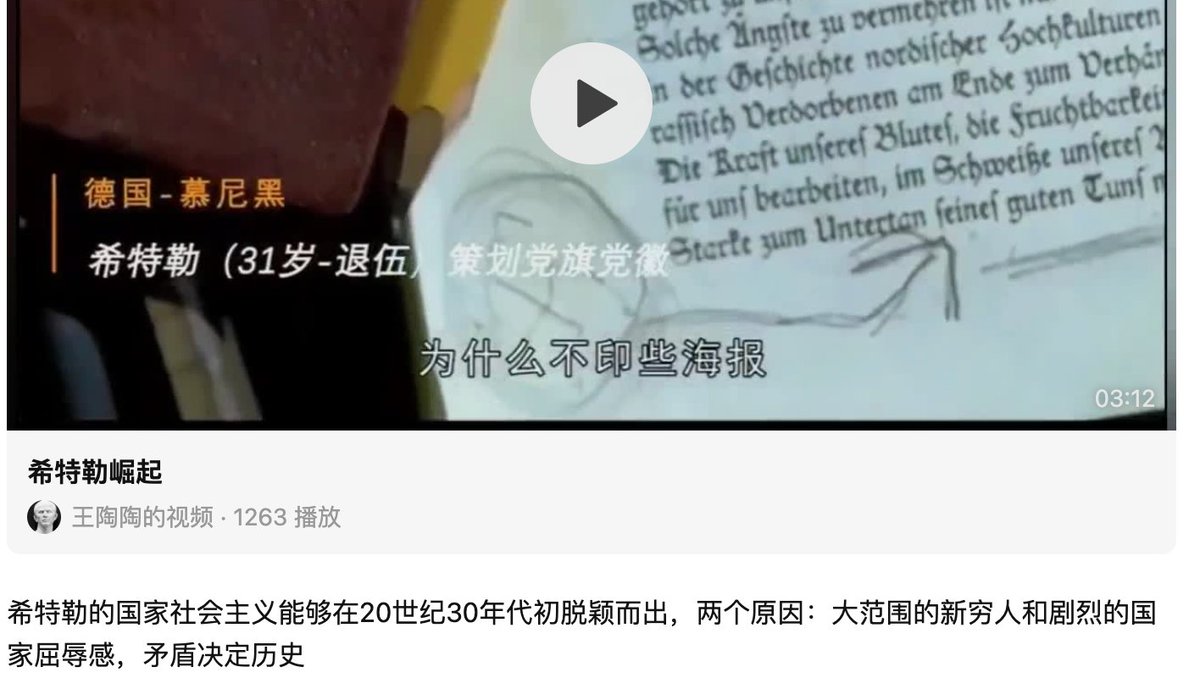
I would say that he's calling for the leadership to get there first—keep the liberals silent, discipline the wealthy, deliver benefits to a young generation shut out of luxury that's seemingly omnipresent but unattainable, and ensure order—but I couldn't say for sure.
And you can read it for yourself, here: zhuanlan.zhihu.com/p/372821868.
• • •
Missing some Tweet in this thread? You can try to
force a refresh


















